|
How Santa Stole Christmas |
|
Page 1 of 2
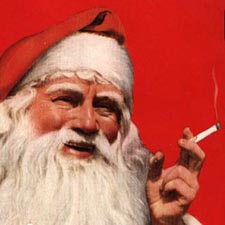
SOMEWHERE IN HERE
THERE USED TO BE A HOLIDAY
It wasn't always this bad. Our Puritan ancestors thought Christmas was a pagan holiday. Based on the nonstop shopping ads, they may have been right. A quick look at some old Portsmouth newspapers tells the tale of a nation trapped by the rising fever of consumption.
CLick to Supersize Smokin' Santa
Heart palpitating, mouth dry, a chain-smoking parent waits for the Fed-X van. It's December 24. She's taken a personal day to sweat out the final hours. Will the fold-up scooter, the MP3-thing and the new PlayStation system arrive in the Saint Nick of time? The stores were cleaned out, forcing her to shop online at the last minute. Though it's still morning, the haggard mother heads to the kitchen for an early gin and tonic, kicking through a sea of used up Pok-e-man toys, Furbies, beanie babies, Power Rangers and Tickle-Me-Elmos. Her success as a parent, her very life, it seems, hangs in the balance. How, she wonders, did Christmas become such a cruel holiday?
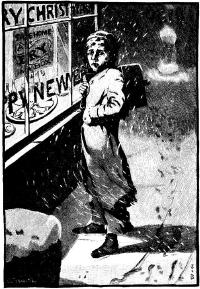
Blame John Harvey. Late in December of 1853 this humble bookseller took out a full-page ad in the Portsmouth Chronicle listing the volumes in his shop as ideal for Yuletide giving. Harvey's just a local scapegoat, of course, in America's relentless slide toward the total commercialism of Christmas, indeed of every holiday.
The tension-laced holiday we know as Christmas is basically a 20th century invention. Early celebrations, history tells us, were less hectic and more festive. From Roman Catholic holidays as early as 300 AD to Shakespeare's England, the emphasis was on consuming vast quantities of food and drink, not conspicuous consumption of power tools, talking toys and high-tech gizmos.
English Puritans, we should remember, hated feasts, masses, dancing in general, and Catholics in particular. Our Massachusetts forebears banned the holidays. Business would go on as usual, they decreed, and anyone caught shirking or enjoying himself would pay a stiff five shilling fine. Although subject to Mass Bay Colony rule in the later 1600s, New Hampshire law enforcement officials were inclined to wink at the harsh laws.
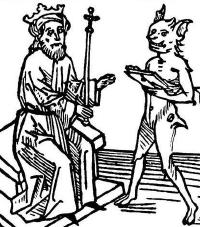 Defiant Yankees feasted all the same on bootleg buttered oranges, mincemeat of lemon and stuffed tame pigeons with boiled ox palate and other colonial delicacies. Christmas, Puritans argued, was as pagan as Halloween. The selected December 25th date was, and remains, an arbitrary choice. The Bible offered no precedent for a holiday. Giving thanks to God was okay. Giving tithes to the church and state was okay. Giving parties and gifts to friends and family was to play the Devil's game. And so the Devil returned slowly to New Hampshire.
Defiant Yankees feasted all the same on bootleg buttered oranges, mincemeat of lemon and stuffed tame pigeons with boiled ox palate and other colonial delicacies. Christmas, Puritans argued, was as pagan as Halloween. The selected December 25th date was, and remains, an arbitrary choice. The Bible offered no precedent for a holiday. Giving thanks to God was okay. Giving tithes to the church and state was okay. Giving parties and gifts to friends and family was to play the Devil's game. And so the Devil returned slowly to New Hampshire.
A random flip through more old Portsmouth newspapers shows no mention of the holiday on the front page in the 1820s. However, small print ads for "Christmas & New Years Presents" appear toward the back of the four-page paper. Again, only books are suggested as gifts. Nearby is a religious poem "Hymn to Christmas" placed next to a Christmas ad for tickets to a Vermont lottery awarding $25,000, a fortune in a day when a paperback book could be purchased for 3 cents.
By the Civil War, Christmas giving was pretty much out of the box in New Hampshire. Food still dominated and it became the custom for contractors at the Navy yard, for example, to put on a feast for soldiers stationed there. A longstanding tradition of paying attention to the local poor continued. Giving was on the rise. Sleighing, according to one 1862 newspaper article, was on the decline, with skating taking over as the hot activity for kids. Several hundred youths went holiday skating on the thin December ice at the mill ponds in Portsmouth that year. One fell through. In the same newspaper article, we may catch an early whiff of rank and file consumerism. In 1862 New Hampshire residents are mostly attending Christmas church services, then feasting on mince pie, turkey and oysters, but there's also this:
"Never before, we think, has the season been so universally 'observed,' especially in the matter of presentations, which is becoming more and more general, year by year."
Presentations? Are we talking Christmas presents here, or was the writer referring to the revival of group holiday events, popular since Medieval times, but squelched by the Puritans? Carolers, another article notes, are common on Christmas morning and the wassail bowl must be kept full. Mummers come to the snowy door, enacting plays that sometimes feature an elderly man in a frosty white beard.
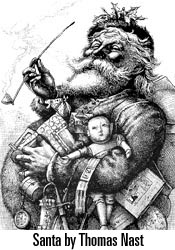 Enter artist Thomas Nast. After attacking corrupt politicians with his biting cartoons, and practically inventing the Republican elephant and Democratic donkey -- Nast drew his Santa Claus for Harper's Weekly in the 1860s. The benevolent 4th century Turkish St. Nicholas was now transformed into a chubby pipe-smoking red-suit wearing, gift-toting American icon, and it didn't take advertisers long to catch on. Victorian era ads, though larger and more visual, still proffer conservative gift choices for Christmas. How about a nice pen set, or some chocolates? By the turn of the century Santa is seen hawking Victrolas, Kodaks, bicycles and sleds. By the 1930s a highly commercial Saint Nick, fashioned from Nast's caricature, is seen swilling Coca-Cola and puffing on Lucky Strike cigarettes. In America, Santa even gives away lung cancer.
Enter artist Thomas Nast. After attacking corrupt politicians with his biting cartoons, and practically inventing the Republican elephant and Democratic donkey -- Nast drew his Santa Claus for Harper's Weekly in the 1860s. The benevolent 4th century Turkish St. Nicholas was now transformed into a chubby pipe-smoking red-suit wearing, gift-toting American icon, and it didn't take advertisers long to catch on. Victorian era ads, though larger and more visual, still proffer conservative gift choices for Christmas. How about a nice pen set, or some chocolates? By the turn of the century Santa is seen hawking Victrolas, Kodaks, bicycles and sleds. By the 1930s a highly commercial Saint Nick, fashioned from Nast's caricature, is seen swilling Coca-Cola and puffing on Lucky Strike cigarettes. In America, Santa even gives away lung cancer.
From here, it's a race to the bottom. Giant department stores, color magazines and children's books, popular music, the rise of lucrative corporations, radio and then TV shows, movies with Christmas themes, Improved transportation, mass production, cheap foreign labor, mail order catalogs, the isolation of war and the poverty of Depression -- pick your own culprit. The American addiction to stuff and more stuff evolved into a national pastime. By the Baby Boom era of the 1950s, it was all over. Everything and everyone was for sale. Christmas and now Hanukkah merchandise today accounts for as much as 60 to 80 percent of some companies' annual revenue. Buy or die -- capitalism rules.
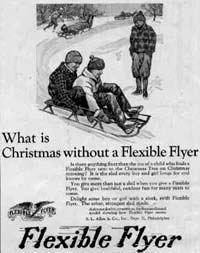 Since Santa Claus is an artistic invention, it makes sense that he stands opposed to two other Christmas creations -- Scrooge and the Grinch. Charles Dickens and Dr. Seuss knew exactly where to strike at the Anglo-American psyche, These hard-hearted figures are cartoon reminders of our Puritan past. They represent us at our worst -- greedy and self centered. Both find the Christmas Spirit and become generous givers. Both are characters in books that have sold millions of copies, not to mention soundtrack and movie rights.
Since Santa Claus is an artistic invention, it makes sense that he stands opposed to two other Christmas creations -- Scrooge and the Grinch. Charles Dickens and Dr. Seuss knew exactly where to strike at the Anglo-American psyche, These hard-hearted figures are cartoon reminders of our Puritan past. They represent us at our worst -- greedy and self centered. Both find the Christmas Spirit and become generous givers. Both are characters in books that have sold millions of copies, not to mention soundtrack and movie rights.
But on closer analysis, what Scrooge and the Grinch discover really, is their humanity. They find that they are accepted and loved despite their upright miserly nature. They change, but that change is not required. They represent, not just the greed in us all, but the soul of self-control. Therapist might say that's a good thing. Like our Puritan ancestors, they are cautionary figures. They are the conservative Ying to our consumer Yang. "Be careful!" they are saying. "Make sure that scooter has good brakes!"
And what of Christmas future? The American trajectory appears fixed. Banks will expand the Christmas Club concept to include athletic gyms where members can train for the grueling annual shopping season. Adults who don't make the cut will join Twelve Step programs for failed consumers -- fully funded by the Home Shopping Network. The New Hampshire Supreme Court will allow kids to sue their parents for purchase or nonpurchase of toys that are deemed likely to cause the child to experience excessive whining or fussing.
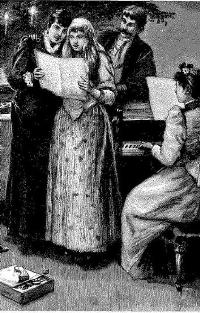 The University of New Hampshire will offer a course called "The Many Faces of Santa: A Multicultural Analysis of Giving" to grad students majoring in Holiday Consumerism. One enterprising doctoral candidate will posit a link between Christmas and a messianic figure from 2000 BS (Before Shopping). Raised somewhere in the war torn Middle East, this child was reportedly born to humble parents with a combined annual income well below the shopping level. A group of kings, attracted by a dazzling light brought him gifts. The child himself, legend records, was himself a gift of some celestial Higher Power to the people of planet Earth. Shopping and gift giving, the grad student will suggest, are two separate and distinct activities.
The University of New Hampshire will offer a course called "The Many Faces of Santa: A Multicultural Analysis of Giving" to grad students majoring in Holiday Consumerism. One enterprising doctoral candidate will posit a link between Christmas and a messianic figure from 2000 BS (Before Shopping). Raised somewhere in the war torn Middle East, this child was reportedly born to humble parents with a combined annual income well below the shopping level. A group of kings, attracted by a dazzling light brought him gifts. The child himself, legend records, was himself a gift of some celestial Higher Power to the people of planet Earth. Shopping and gift giving, the grad student will suggest, are two separate and distinct activities.
The student's hypothesis will be tossed out for lack of authoritative supporting evidence. "Too far fetched," one professor will later remark. "Where do kids get these crazy notions today?"
Originally published December 2000.
Sources: Early articles from "Portsmouth Morning Chronicle" and "Portsmouth Journal" with research assistance by Richard Winslow and Nicole Luongo.
CLICK Ahead to see SMOKING SANTA AD
Please visit these SeacoastNH.com ad partners.



 HISTORY
HISTORY





 Defiant Yankees feasted all the same on bootleg buttered oranges, mincemeat of lemon and stuffed tame pigeons with boiled ox palate and other colonial delicacies.
Defiant Yankees feasted all the same on bootleg buttered oranges, mincemeat of lemon and stuffed tame pigeons with boiled ox palate and other colonial delicacies.  Enter artist Thomas Nast. After attacking corrupt politicians with his biting cartoons, and practically inventing the Republican elephant and Democratic donkey -- Nast drew his Santa Claus for Harper's Weekly in the 1860s. The benevolent 4th century Turkish St. Nicholas was now transformed into a chubby pipe-smoking red-suit wearing, gift-toting American icon, and it didn't take advertisers long to catch on. Victorian era ads, though larger and more visual, still proffer conservative gift choices for Christmas. How about a nice pen set, or some chocolates? By the turn of the century Santa is seen hawking Victrolas, Kodaks, bicycles and sleds. By the 1930s a highly commercial Saint Nick, fashioned from Nast's caricature, is seen swilling Coca-Cola and puffing on Lucky Strike cigarettes. In America, Santa even gives away lung cancer.
Enter artist Thomas Nast. After attacking corrupt politicians with his biting cartoons, and practically inventing the Republican elephant and Democratic donkey -- Nast drew his Santa Claus for Harper's Weekly in the 1860s. The benevolent 4th century Turkish St. Nicholas was now transformed into a chubby pipe-smoking red-suit wearing, gift-toting American icon, and it didn't take advertisers long to catch on. Victorian era ads, though larger and more visual, still proffer conservative gift choices for Christmas. How about a nice pen set, or some chocolates? By the turn of the century Santa is seen hawking Victrolas, Kodaks, bicycles and sleds. By the 1930s a highly commercial Saint Nick, fashioned from Nast's caricature, is seen swilling Coca-Cola and puffing on Lucky Strike cigarettes. In America, Santa even gives away lung cancer.  Since Santa Claus is an artistic invention, it makes sense that he stands opposed to two other Christmas creations -- Scrooge and the Grinch. Charles Dickens and Dr. Seuss knew exactly where to strike at the Anglo-American psyche, These hard-hearted figures are cartoon reminders of our Puritan past. They represent us at our worst -- greedy and self centered. Both find the Christmas Spirit and become generous givers. Both are characters in books that have sold millions of copies, not to mention soundtrack and movie rights.
Since Santa Claus is an artistic invention, it makes sense that he stands opposed to two other Christmas creations -- Scrooge and the Grinch. Charles Dickens and Dr. Seuss knew exactly where to strike at the Anglo-American psyche, These hard-hearted figures are cartoon reminders of our Puritan past. They represent us at our worst -- greedy and self centered. Both find the Christmas Spirit and become generous givers. Both are characters in books that have sold millions of copies, not to mention soundtrack and movie rights.  The University of New Hampshire will offer a course called "The Many Faces of Santa: A Multicultural Analysis of Giving" to grad students majoring in Holiday Consumerism. One enterprising doctoral candidate will posit a link between Christmas and a messianic figure from 2000 BS (Before Shopping). Raised somewhere in the war torn Middle East, this child was reportedly born to humble parents with a combined annual income well below the shopping level. A group of kings, attracted by a dazzling light brought him gifts. The child himself, legend records, was himself a gift of some celestial Higher Power to the people of planet Earth. Shopping and gift giving, the grad student will suggest, are two separate and distinct activities.
The University of New Hampshire will offer a course called "The Many Faces of Santa: A Multicultural Analysis of Giving" to grad students majoring in Holiday Consumerism. One enterprising doctoral candidate will posit a link between Christmas and a messianic figure from 2000 BS (Before Shopping). Raised somewhere in the war torn Middle East, this child was reportedly born to humble parents with a combined annual income well below the shopping level. A group of kings, attracted by a dazzling light brought him gifts. The child himself, legend records, was himself a gift of some celestial Higher Power to the people of planet Earth. Shopping and gift giving, the grad student will suggest, are two separate and distinct activities. 














